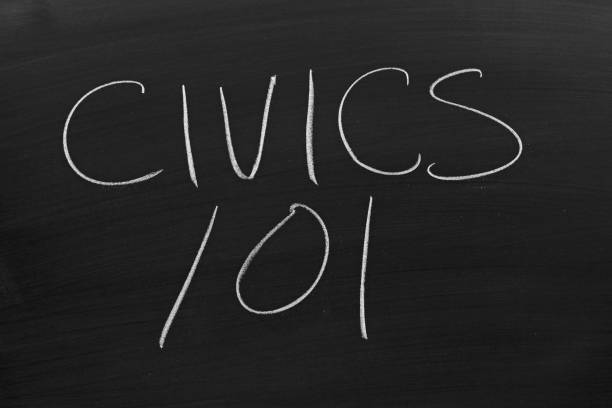Democracy isn’t inherited, it’s taught. And right now, we’re failing to teach it.
As a student in Canada, I see it every day: most young people don’t feel responsible for voting or even for researching the policies that shape their lives. It’s not because they don’t care. It’s because no one taught them how.
We just had a federal election, yet many students I know couldn’t explain the difference between major political parties or how our government actually works. Most are unprepared to engage with basic concepts like taxes, public spending, or the role of Parliament. As a young politician myself, I had to teach myself the fundamentals of political systems and public finance—things that should be mandatory for every student before they graduate.
But when civic education is missing, ignorance becomes the default and that’s dangerous.
The lack of civic education is more than a missed opportunity, it’s a democratic vulnerability. When people vote without understanding, society pays the price. Misleading campaigns, misinformation on social media, and emotional appeals easily overpower facts and policy.
I’ve met peers who genuinely believed that the Prime Minister has the power to set gas prices or cancel provincial curriculum changes. Others said they’d vote for the “funniest” candidate on TikTok. This isn’t just ignorance, it’s the predictable result of a system that doesn’t prepare citizens to think critically about politics and economics.
Mandatory education in these areas would change that. A good course wouldn’t tell students what to think, but how to think: how to recognize bias, how to fact-check information, and how to evaluate policies based on evidence, not emotion. Research indicates that in countries with poorly informed electorates, politicians often increase government spending during election years to appeal to voters, leading to budget deficits that are 0.7% to 1.2% of the total GDP, higher relative to non-election years. That’s a significant economic cost we could reduce by simply teaching students how to understand what they’re voting for.
And the data couldn’t be clearer: teaching politics and economics pays off.
The evidence for civic education is overwhelming. Students who studied economics were 23% more likely to open a savings account, 21% less likely to carry credit card debt, and showed a 19% improvement in credit scores.
These aren’t abstract gains. A friend of mine once signed up for a high-interest credit card in college, not realizing how interest compounds. By the time he paid it off, he’d racked up hundreds of dollars in extra charges, all because he was never taught how credit works. That could’ve been avoided with one economics class in high school.
Civics and economics also help students become better thinkers. Analyzing political systems builds critical thinking. Debating current issues improves communication. Reading party platforms, interpreting budget data, and writing persuasive essays all sharpen core academic skills—reading, writing, and math included.
These aren’t just lessons for the classroom,they’re lifelong skills that shape careers and character.
These subjects don’t just create better citizens, they create more capable professionals. A foundation in politics and economics prepares students for careers in law, government, business, journalism, marketing, finance, education, and more. They build transferable skills like ethical reasoning, research, strategic thinking, and data analysis.
They also create more empowered individuals. Students involved in civic-learning programs report 35% higher life satisfaction and purpose because they feel like their voice matters. And it does.
Of course, some worry about the downsides but those fears don’t hold up.
Some argue that mandatory civics and economics might lead to political indoctrination, reduce elective options, or add pressure to students already dealing with stress.
But let’s be honest: any social studies course has the potential to become biased. That’s why we already have systems in place—like anonymous reporting—to address those concerns. And most students have free blocks or filler electives that could easily be replaced with something that truly matters.
As for mental health? Knowing how to vote, budget, or advocate for your beliefs actually reduces stress. It makes young people feel more confident in navigating adult life.
So the choice is ours: wait for democracy to decay or teach the next generation how to defend it.
Mandatory courses in politics and economics won’t solve everything but they’re one of the clearest, smartest steps we can take to strengthen our democracy. Students deserve to graduate with not just academic knowledge, but civic power.
The real question is this: Will we wait for democracy to decline or will we prepare the next generation to protect it?
This piece solely expresses the opinion of the author and not necessarily the magazine as a whole. SpeakFreely is committed to facilitating a broad dialogue for liberty, representing a variety of opinions. Support freedom and independent journalism by donating today.
